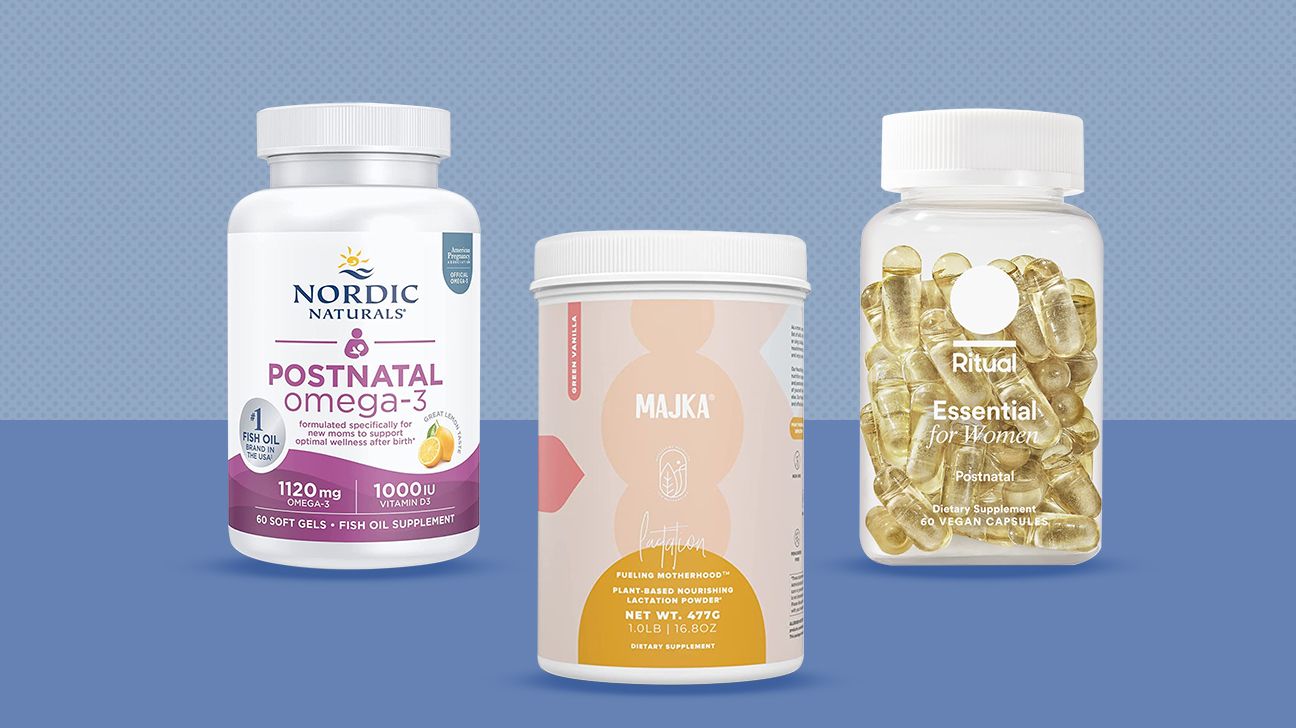The best postnatal vitamins may help a person meet their nutritional needs after childbirth and while lactating. They usually contain vitamins and minerals to support postpartum recovery and lactation.
A note about sex and gender
Sex and gender exist on spectrums. This article will use the terms “male,” “female,” or both to refer to sex assigned at birth. Learn more.
- Best for nutrient content: Anya Postnatal Omega Vitamins
- Best liquid multivitamin: Mary Ruth’s Postnatal Liquid
The following table compares key points on the postnatal vitamins listed in this article:
| Price | Servings | Form | |
|---|---|---|---|
| Megafood | $29.99 | 30 | tablet |
| Ritual | $39 | 30 | capsule |
| Nordic Naturals | around $30 | 30 | softgel |
| Nature Made | around $28 | 60 | softgel |
| Majka Organic | $69 | 15 | powder |
Medical News Today selects postnatal vitamins that meet the following criteria:
- Ingredients: MNT chooses vitamins containing safe and high-quality ingredients that the company clearly lists on its packaging. Vitamins labeled for postnatal use should include ingredients known to be safe and beneficial for this particular stage in a person’s life. The brands should also confirm its vitamins are free from pesticides, heavy metals, and mold.
- Dosage: MNT only selects vitamins that clearly state the recommended dosage. The serving size must also be safe.
- Third-party testing: MNT only features vitamins that undergo third-party testing for contaminants in an ISO 17025-compliant laboratory.
- Available certificate of analysis: MNT selects companies that demonstrate transparency and share a product’s certificate of analysis (COA) following receipt of its third-party lab results.
People should choose a supplement that contains a variety of vitamins and minerals, including:
- omega-3
- folate
- choline
- iron
- selenium
- vitamins A, B1, B2, B6, and B12
- iodine
People may have different nutrition needs during the postpartum period, and no specific supplement will fit all recommendations. For example, lactating people
A person should consider supplements from reputable brands with third-party testing and many customer reviews.
A healthcare professional can offer guidance on choosing a postnatal vitamin that suits an individual’s needs.
The World Health Organization (WHO) recommends that people take postnatal vitamins to support recovery postpartum. This is especially
Although prenatal and postnatal supplements consist of similar ingredients, postnatal supplements usually contain additional amounts of vitamin D to help the body
Postpartum care is an ongoing process, so people should visit a doctor regularly after childbirth. The American College of Obstetricians and Gynecologists (ACOG) recommends that people who have given birth should visit a healthcare professional within the first 3 weeks postpartum. Regular visits should then follow as needed.
If a person is feeling physically or emotionally unwell or experiencing complications, they should make an appointment with a healthcare professional. This is especially important if the person has a chronic medical condition, such as:
As people’s individual nutritional requirements may differ after childbirth, a healthcare professional can advise if a particular supplement is better suited to them.
People should choose a postpartum supplement that contains vitamins, minerals, and other nutrients that can help support the body and milk production after birth, such as iodine, DHA, and vitamin B12.
Postnatal vitamins may be beneficial after childbirth as they can help reduce the risk of vitamin and mineral deficiencies. They may also be helpful if a person is breastfeeding. The best postnatal vitamins while breastfeeding should contain folate, DHA, vitamin D, iodine, and vitamin K2.
People who are vegetarian or vegan are more likely to need postnatal vitamins as they are at a higher risk of vitamin B12 and iron deficiency, which can be harmful to their children.
Postnatal vitamins usually contain higher doses of vitamins and minerals than prenatal vitamins. It is important to use postnatal vitamins after giving birth as people may need higher doses.
Healthcare professionals may recommend parents start taking postnatal vitamins after birth. However, people should always talk with a healthcare professional before starting any new supplements.
Postnatal vitamins are available in different forms and may help support postpartum health. They also provide necessary nutrients for the infant through breast milk.
Postnatal supplements usually contain different dosing of nutrients than prenatal supplements and are suitable during lactation.
People can contact a doctor if they have any health concerns postpartum. A healthcare professional can order tests for nutrient deficiencies and advise on necessary supplements.


